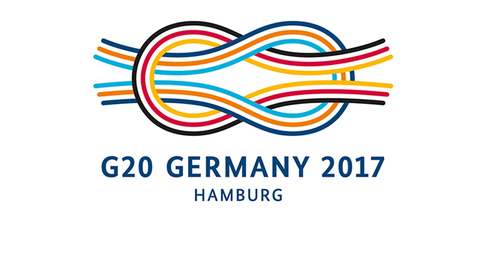“‘We can achieve more together than by acting alone”.
That’s what the G20 Leaders stated in the outcome document or communique of the G20 Leaders’ Summit in Hamburg last week. In these turbulent times, international solidarity and collaboration is far from easy. However, this deliberate statement was a symbol to us all that this year, the leaders of the world’s wealthiest nations showed that the G20 and international cooperation is far from dead.

The full communique can be found here, but if you don’t want to read the whole 16 pages here’s my highlights:
1. Health was on the agenda
This year was the first ever time that the G20 discussed health. There have been varying and dividing opinions as to whether this was the right decision by the German government. I believe it was. The G20 was founded in 1999 to discuss economic development and financial stability. Health is a driver, or destructor, of economies, and therefore economic growth and the health of populations. Without good health, economic gains will be temporary and human development will always be at risk. All eyes are on Argentina, who hold next year’s G20 presidency, to see whether they give health the same level of attention as Germany.
2. Commitment to tackle drug resistant infections, including tuberculosis
One of the biggest successes within the G20 was the commitment to tackle drug resistant infections by prioritising research and development of new antimicrobials, including for tuberculosis. The number of deaths from drug-resistant TB is increasing, at the same time that global investment into TB research and development is falling. Current spending on all TB research and development is only a third of the $2 billion that is needed. The G20 call for a “new international R&D Collaboration Hub to maximise the impact of existing and new anti-microbial…research initiatives” could see real movement in curbing the TB epidemic, if the G20 countries deliver on their promise to prioritise it. The next 12 months present a number of opportunities for global action on tuberculosis, starting with the Global Ministerial Conference on ending TB in the sustainable development era in Moscow in November, followed by the first ever UN High-Level Meeting on Tuberculosis in 2018. Thank you to everyone who took action in our Drugs don’t work campaign calling on the UK government to make this a reality. We know that AMR will continue to be on the agenda for Argentina, so we’re looking forward to seeing the outcome.
3. Building resilient health systems, committing to universal health coverage and polio eradication
One of the major themes of the German presidency was building resilience, which came out strongly in its prioritisation of the importance of strong health systems. Within it, the G20 Leaders strived to fully eradicate polio. This is encouraging, especially given that last month, donors and developing countries committed an incredible $1.2 billion to the Global Polio Eradication Initiative at the Rotary Convention in Atlanta. We hope that the UK will match this level of ambition, in line with its G20 commitment and make a strong pledge to the GPEI in the coming weeks.
4. Acknowledgement of the importance of education
For the first year ever, global education was on the agenda at the G20 and also featured in the Leaders’ Communiqué. As we launch our Education Counts campaign ahead of the Global Partnership for Education (GPE) replenishment, we were really pleased to see world leaders recognise the role that GPE plays in education financing.